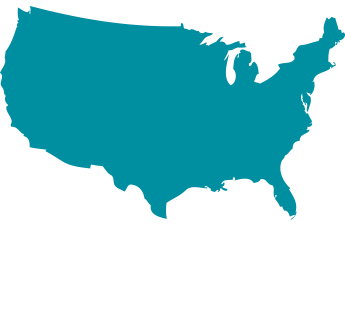Project Timeline:
Locations Impacted:

A project of the Council of Michigan Foundations


Since 1994, Foundations on the Hill (previously known as RAGs on the Hill) has been an annual event that brings grantmakers and regional associations of grantmakers to Washington, D.C., to speak with federal legislators about the importance of foundations in supporting charitable causes and services. As a result of this initiative, public policy makers at the national level are more aware of grantmaking initiatives and foundations in their own districts. Before Foundations on the Hill was officially established, Michigan grantmakers from the Council of Michigan Foundations (CMF) were some of the first to visit Washington, D.C., to lobby for foundations. Their efforts, starting as early as 1977, served as the precursor to Foundations on the Hill.
After the Tax Reform Act of 1969 was passed, Michigan grantmakers realized that they needed to effectively communicate with policymakers about the role of foundation philanthropy in addressing social needs and why it was necessary to continue foundation growth. The Tax Reform Act of 1969 had created a number of major barriers to foundation philanthropy, including a high mandatory payout requirement (nearly 7%) and a high excise tax on private foundations (4%). These provisions discouraged charitable donations to private foundations, negatively impacted the creation of new foundations, and diminished the effectiveness of foundations in serving their communities.
At the fourth annual CMF conference, members directed the board of trustees to “develop a public information program in support of Michigan foundation philanthropy and institute a plan to communicate with public policymakers.” The approved mandate led to the creation of the conference mandate (government relations) Committee, which still exists as an ongoing CMF committee. In 1977, William S. White, then chair of CMF’s board, led the first delegation of Michigan grantmakers to Washington D.C. During the visit, they met face-to-face with 10 congressmen from Michigan, lobbying for a lower payout requirement and lower excise tax on foundations.
Initial efforts focused on building relationships with legislators and promoting awareness of foundation philanthropy and how it has helped their respective constituents. In 1980, CMF launched the “Developing Good Will Program,” to change the way that legislators viewed foundations. During each visit, congressmen would receive reports about foundations in their district and lists of the grants that they had made, among other documents. For CMF, these documents included the Michigan Foundation Directory and CMF’s key indicator and grant papers. The foundations needed legislators to turn to them as a resource, which would in turn build trust and partnership among the visiting grantmakers and legislators.
Within seven years, CMF and other regional associations that had started to join were successful in bringing about legislative changes in various laws and regulations, including the reduction of the mandatory payout requirement to a flat 5% and the reduction of the excise tax from 4% to 2%, and in some cases 1%. The visits were successful for several reasons, but particularly because strong leaders, such as Dorothy A. Johnson and Margaret (Ranny) A. Riecker, organized the visits and applied a very specific legislative plan of work each year. The original legislative goals statement for CMF was adopted March 1, 1979, and in the 35 years since then, the government relations committee has revised the statement every one to two years. Often, these goals are aligned with the legislative goals of the Council on Foundations (COF), which works at the national level.
From the start, Ranny Riecker played a key role in developing the legislative goals and initiatives of CMF. As a member and officer of CMF’s board, Riecker was involved in various capacities on the conference mandate (government relations) committee from the time it was founded until the late 1990s. Riecker had a particular interest and expertise in developing public policy, having served as, among other roles, Republican National Committeewoman from Michigan in the 1980s. With a strong background in public policy, Riecker served as longtime chair of the government relations committee from 1990 to 1999 and brought her political organizing skills to the non-partisan work of the foundations. From 1992 to 1995, Riecker also chaired COF’s legislative and regulation committee, at a time when the national RAGs on the Hill conference was just beginning.
Strong relationships developed as a result of CMF’s yearly visits to Capitol Hill. U.S. Rep. Dave Camp, R-Midland, in particular, has been a strong ally to foundations. As other regional associations of grantmakers (RAGs) continued to join in the visits to Washington, D.C., Camp would often come to talk with the various grantmakers from around the country at annual dinners and luncheon gatherings. Camp co-sponsored several bills and helped garner support for them. Camp later joined the House Committee on Ways and Means, the chief tax writing committee in the House of Representatives, and became chairman in 2011. The support and understanding of key government leaders, such as Camp, has had an invaluable impact on public policy efforts to encourage charitable giving.
From 1994 to 2003, the visits to Washington D.C., were formalized and led by COF and the Forum of Regional Associations of Grantmakers (known as the Regional Initiative from 1992 to 1995, and now United Philanthropy Forum), which served as a supporting organization of COF. The partnerships between local organizations, such as CMF, and national organizations, such as COF, Forum of Regional Associations of Grantmakers, and Independent Sector, were important in several ways. National organizations contributed extensive knowledge of the legislative process and public policy at the federal level, whereas the participating regional grantmakers were crucial in bringing the stories of real people and local community needs to Washington D.C.
The annual trip and conference continues today under its new name — in 2003, it was formally named Foundations on the Hill. Each year, the Foundations on the Hill gathering is still hosted by the United Philanthropy Forum in partnership with COF. In 2013, the Alliance for Charitable Reform, a project of the Philanthropy Roundtable, joined as a co-sponsor. CMF remains a participating organization in Foundations on the Hill, among 20 or more other regional associations.
Presently, there are over 200 grantmakers that make the visit each year. As Johnson notes:
“It has proven to be extremely valuable to have local people talking about what they’ve done, the value, and frankly the issues that they have as well.”
![]() Video: Watch leaders discuss Foundations on the Hill:
Video: Watch leaders discuss Foundations on the Hill: